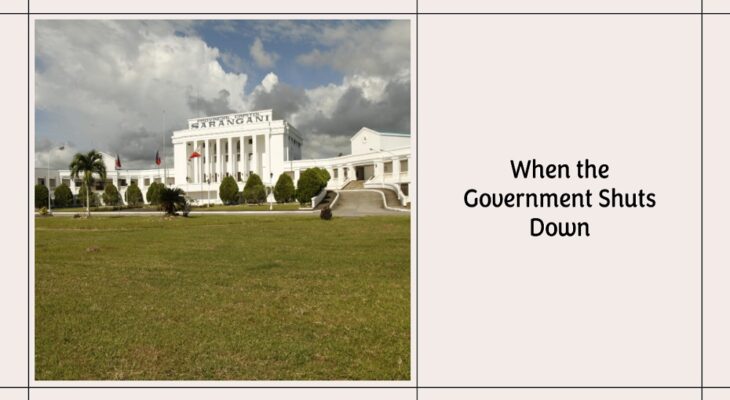
Did Obama Shut Down the Government
In the digital age, where rapid dissemination of information can sometimes result in the distortion of facts, it’s crucial to set the record straight on notable events. One such topic that has frequently been the subject of debate and misinformation is the question, “Did Obama shut down the government?” This article delves deep into the historical facts surrounding this question, aiming to provide readers with a comprehensive understanding.
The Genesis: What Leads to a Government Shutdown?
Before attributing responsibility to any specific figure or event, it’s pivotal to understand the mechanics that can lead to a government shutdown. In the U.S., when Congress can’t agree on the funding for the upcoming fiscal year or resolve budget disputes, this can result in a government shutdown. Essentially, it’s a failure of the legislative and executive branches to fund the government and its operations.
The Obama Era and Government Shutdowns
Barack Obama, the 44th president of the United States, served two terms from 2009 to 2017. During this period, there was a significant government shutdown in 2013. But was it solely because of Obama?
The 2013 Government Shutdown: The Facts
The 2013 government shutdown lasted for 16 days, from October 1st to October 16th. This shutdown was primarily the result of a political impasse between the Republican-controlled House of Representatives and the Democratic-led Senate. The contention? The Affordable Care Act (ACA), commonly known as Obamacare.
House Republicans aimed to delay or defund the ACA. They passed several budget resolutions with provisions altering the ACA, which the Senate consistently rejected. Obama, standing firm on his signature legislation, indicated he would veto any legislation that undermined the ACA.
Obama’s Role
While President Obama was certainly a key player in the events leading up to the shutdown, attributing the entire shutdown to him would be an oversimplification. The legislative process involves multiple parties, and the deadlock was a result of conflicting priorities between the House, Senate, and the President.
However, critics argue that Obama could have taken a more conciliatory approach or found common ground with House Republicans. Supporters contend that compromising on such a significant piece of legislation would have set a worrying precedent.
The Bigger Picture: Shutdowns Are Not New
Historically, government shutdowns have occurred under various presidents, both Democrat and Republican. While the reasons vary, they underscore the nature of the U.S. political system, where checks and balances can sometimes lead to standoffs.
For context, before Obama, the government experienced a notable shutdown under President Bill Clinton in the mid-1990s, stemming from disagreements with a Republican-led Congress over budgetary concerns.
Frequently Asked Questions
- When did the 2013 government shutdown occur? The 2013 government shutdown happened from October 1st to October 16th.
- What was the primary reason for the 2013 shutdown? The central contention leading to the shutdown was the Affordable Care Act (Obamacare). House Republicans wanted to delay or defund it, while the Senate and President Obama opposed such measures.
- Did government shutdowns occur before Obama’s presidency? Yes, government shutdowns have occurred under various presidents, including a notable one under President Bill Clinton in the mid-1990s.
- Who is responsible for a government shutdown? Responsibility often lies with multiple parties. It can be a result of disagreements between the executive branch (the President) and the legislative branch (Congress).
Conclusion
The question, “Did Obama shut down the government?”, may seem straightforward, but the underlying events leading to the 2013 government shutdown were multifaceted. While Obama played a role in the events, the shutdown was more a product of systemic political disagreements than the actions of a single individual. Understanding these nuances is essential for an informed perspective on U.S. governance and politics.
















